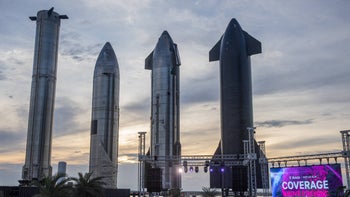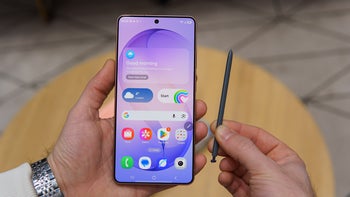The Google Pixel 4 suffers from embarrassingly slow USB-C data transfer speeds

The USB-C port on your Android phone does more than allow you to charge the device. It also is used as a conduit to transfer data to and from the handset. As pointed out by Android Authority, the first Pixel series from back in 2016 uses USB-C 3.0 and the mid-range Pixel 3a models employ USB-C 2.0; all other Pixel units are equipped with USB-C 3.1. In theory, the Pixel 4 should transfer data at the same rate as other phones in its class. But this doesn't seem to be the case.
After running some tests, Android Authority discovered that the file transfer rate for the Pixel 4 is actually slow with such transfers taking twice as long or longer to complete as the competition. For example, a 10.8GB mp4 file took the Pixel 4 84 seconds to read and 135 seconds to write. That is shockingly long when you consider that the Huawei Mate 30 Pro took only 35 seconds to read the file and 67 seconds to write it. Huawei's Honor View20 also handled the file like a boss taking 59 seconds to read and only 42 seconds to write.
Surprisingly, 2017's Pixel 2 scored very well as the phone took only 55 seconds to read the mp4 file and another 55 seconds to write it. The slowest transfer times belonged to the Pixel 3 which took 107 seconds and 135 seconds to read and write the file, respectively.
| Phone | Read (in seconds) | Write (in seconds) |
|---|---|---|
| Google Pixel | 92 | 82 |
| Google Pixel 2 | 55 | 55 |
| Google Pixel 3 | 107 | 135 |
| Google Pixel 4 | 84 | 125 |
| Huawei Mate 30 Pro | 35 | 67 |
| Honor View 20 | 59 | 42 |
| OnePlus 7T Pro | 40 | 77 |
| Galaxy S10e | 63 | 61 |
The fact that Google decided to use UFS (Universal Flash Storage) 2.1 for the Pixel 4 instead of UFS 3.0 (which is found on some newer flagship phones like the Galaxy S20 line and the OnePlus 7 models) has nothing to do with this issue. After all, the Pixel 2 uses UFS 2.1 and its transfer speeds were just fine. Additionally, we can't blame the Snapdragon 855 Mobile Platform that powers the Pixel 4 series because it is the same chip found in the OnePlus 7.
For the Pixel 4, we can add slow transfer speed to the list of things that make Google's 2019 flagship series disappointing. That list includes low battery life, the lack of an ultra-wide-angle camera and the limited Motion Sense capabilities.
So Google, if you're listening, this is something else that needs to be fixed if the Pixel line is going to compete with Apple and Samsung's flagship phones in the near future. Meanwhile, if you own a Pixel 4 series phone and need to backup your data often, you can expect to spend a little more time getting this task done.
Follow us on Google News














Things that are NOT allowed:
To help keep our community safe and free from spam, we apply temporary limits to newly created accounts: